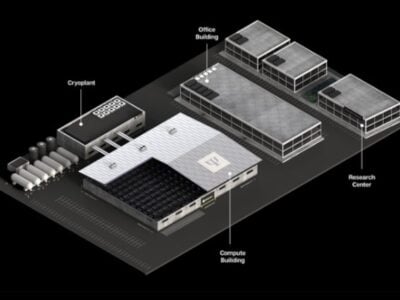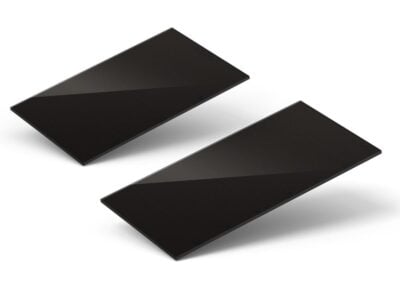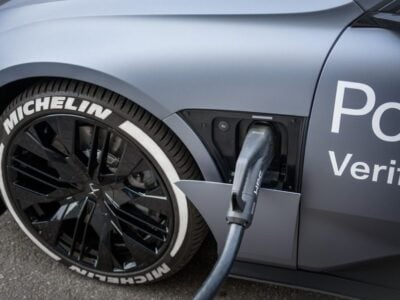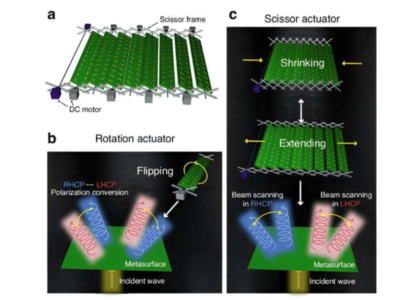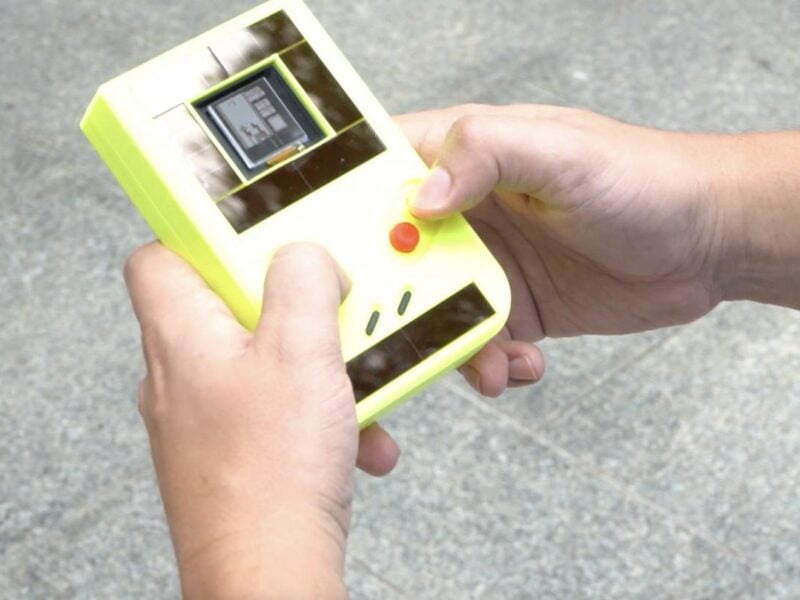
First battery-free energy harvesting GameBoy
Researchers in the Netherlands have developed a hand-held GameBoy video game console allowing indefinite gameplay by energy harvesting from solar cells and the buttons
The proof-of-concept was developed by researchers at the Delft University of Technology (TU Delft) in the Netherlands and Northwestern University in the US.
The energy aware gaming platform (ENGAGE) has the size and form factor of the original GameBoy, using a set of solar panels around the screen. Button presses by the user are a second source of energy. Most importantly, it impersonates the Game Boy processor to run games straight from the original cartridge.
As the device switches between power sources, it does experience short losses in power. To ensure an acceptable duration of gameplay between power failures, the researchers designed the system hardware and software from the ground up to be energy aware as well as very energy efficient. They also developed a new technique for storing the system state in non-volatile memory, minimizing overhead and allowing quick restoration when power returns. This eliminates the need to press “save” as seen in traditional platforms, as the player can now continue gameplay from the exact point of the device fully losing power.
On a typical day, gameplay interruptions typically last less than one second for every 10 seconds of gameplay. The researchers find this to be a playable scenario for some games — including Chess, Solitaire and Tetris
“Sustainable gaming will become a reality, and we made a major step in that direction — by getting rid of the battery completely,” said Przemyslaw Pawelczak, assistant professor in the Embedded Software Lab at TU Delft who co-led the research. “With our platform, we want to make a statement that it is possible to make a sustainable gaming system that brings fun and joy to the user.”
“It’s the first battery-free interactive device that harvests energy from user actions,” said Josiah Hester, assistant professor of electrical and computer engineering and computer science in Northwestern’s McCormick School of Engineering who co-led the research. “When you press a button, the device converts that energy into something that powers your gaming.” The system will be demonstrated at the UbiComp 2020 conference next week.
The team on ENGAGE includes Jasper de Winkel and Vito Kortbeek, both graduate researchers at TU Delft.
“Our work is the antithesis of the Internet of Things, which has many devices with batteries in them,” said Hester. “Those batteries eventually end up in the garbage. If they aren’t fully discharged, they can become hazardous. They are hard to recycle. We want to build devices that are more sustainable and can last for decades.”
Related energy harvesting articles
- AIRBUS LEADS MAJOR €8m INVESTMENT IN CHIP DESIGNER
- ATMOSIC, SMK ELECTRONICS TEAM ON BATTERY-FREE IoT
- ENERGY SUPPLY FOR A MOON BASE
Other articles on eeNews Power
- Miniature nuclear battery lasts 20 years
- Using fruit peel waste to recycle lithium
- Power integrity for waferscale AI with 400,000 cores
 If you enjoyed this article, you will like the following ones: don't miss them by subscribing to :
eeNews on Google News
If you enjoyed this article, you will like the following ones: don't miss them by subscribing to :
eeNews on Google News

